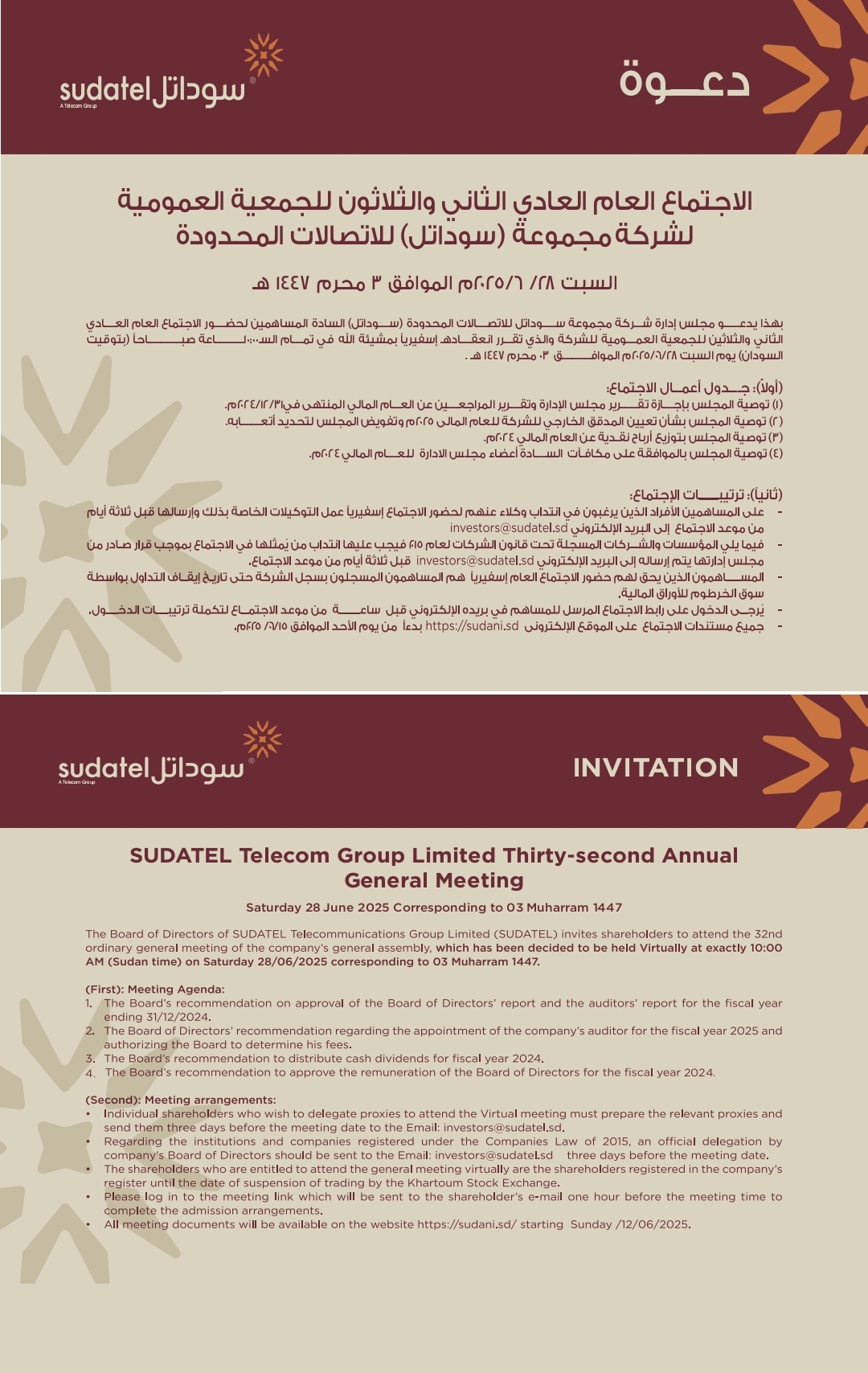د. محمد يوسف قباني يكتب: ديناميات الحرب النفسية: استخدام الفتنة كأداة لصناعة الفوضى في السودان.. The Dynamics of Psychological Warfare: Using Sedition as a Tool to Create Chaos in Sudan.. Dr. Mohamed Elgabbani..

د. محمد يوسف قباني يكتب: ديناميات الحرب النفسية: استخدام الفتنة كأداة لصناعة الفوضى في السودان..
The Dynamics of Psychological Warfare: Using Sedition as a Tool to Create Chaos in Sudan..
Dr. Mohamed Elgabbani..
في ظل النزاعات المعقدة التي يشهدها السودان، تتجاوز أدوات الصراع حدود الأسلحة التقليدية لتدخل في فضاء أوسع وأكثر خطورة يتمثل في الحرب النفسية. إن استخدام الفتنة الطائفية، والعرقية، والقبلية، والدينية، لم يعد مجرد نتيجة عرضية للصراع، بل أصبح أداة مقصودة تُستخدم ضمن استراتيجيات محكمة لصناعة الفوضى وتفكيك المجتمعات. تتسلل هذه الفتن عبر الخطابات الإعلامية، ومنصات التواصل، وحتى منابر الوعظ
والسياسة، لتغذي الانقسام، وتعمق أسباب التنازع ووتزيد من مسببات الفشل، وتنزع الثقة، وتشل الإرادة الجمعية.
تهدف هذه المقالة إلى تحليل ديناميات الحرب النفسية في السياق السوداني المأزوم، وتحديد كيفية استخدام الفتنة كآلية مركزية في هذا النوع من الحروب، وآثارها الاجتماعية والسياسية والنفسية على المجتمع السوداني الأصيل، كما تحاول تقديم إطار تحليلي لفهم الآليات والنتائج، مع الإشارة إلى بعض أدوات التصدي والتعافي الممكنة.
الحرب النفسية هي استخدام مقصود ومتعمد لمعلومات وأدوات إعلامية ونفسية لتوجيه تفكير وسلوك المجتمعات بهدف زعزعة استقرارها وتحقيق مكاسب استراتيجية، وتشمل مكوناتها:
1. التضليل الإعلامي
2. الشائعات المنظمة
3. التحريض النفسي
4. زعزعة الثقة بين مكونات المجتمع السوداني في أي مكان
والفتنة هنا، وكآلية ناجحة جداً ضمن الحرب النفسية، ومن منظور علم الاجتماع السياسي، تعتبر حالة من الاستقطاب والانقسام تُثار عبر روايات محمّلة بالمظلومية التاريخية أو التمايز الهوياتي، وتُغذى بمعلومات منتقاة، أو محرّفة، تؤدي إلى نشوء عدائية متبادلة بين الجماعات في وسط المجتمعات السودانية المتداخلة والمسالمة. ومن ناحية السياق السوداني وتاريخ الفتنة، فمنذ الاستقلال، ورث السودان تركيبة سكانية وثقافية معقدة دون مشروع وطني جامع، حيث أسهمت النخب السياسية بقصد أو من دون قصد في تعزيز الهويات الأولية على حساب الهوية الجامعة، وكانت النتيجة:
1. انفصال الجنوب
2. تمرد دارفور
3. تهميش الشرق
4. صراعات داخلية بين أكثر من 55 مكون قبلي
ولقد استخدمت الأنظمة السياسية الفتنة كآلية اعتمدت عليها وُظفت لاشعال المجتمعات عبر العقود لــ:
1. لتفكيك قوى المعارضة
2. لتبرير القمع
3. ولإلهاء الشارع عن الفشل الإداري
فأصبحت الفتنة سياسة رسمية في أحيان كثيرة، تُمرر عبر الخطاب الإعلامي والتعليم، وأحياناً حتى عبر الخطاب الديني والمجتمعي.
وأما آليات الحرب النفسية في السودان، فأخطرها الإعلام، فالإعلام يعتبر سلاح فتنة فتاك، إذ تلعب القنوات الفضائية، وصفحات التواصل، والمدونات دوراً مركزياً في نشر روايات الكراهية والعنف، ويتم ذلك عبر:
1. شيطنة الآخر
2. بث المقارنات الظالمة بين المجتمعات
3. تصوير مكوّنات المجتمع كمهددات لبعضها، وهذا أشدها خطورة
وتعتمد الحرب النفسية على بث شائعات ذات طابع استفزازي (الشائعة والتحريض العاطفي):
1. قبيلة كذا هي من تآمرت مع الخارج
2. المجموعة الفلانية تستحوذ على الثروات
3. الجهة الفلانية وراء انهيار الخدمات
واقع أليم .. وكلها تهدف إلى ترسيخ الشعور بالخيانة والغبن عبر إيجاد حالة من الذعر الجماعي يُستخدم التضليل لصناعة شعور بالخطر الدائم بقصد أو من غير قصد:
1. انهيار أمني وهمي
2. تهويل الخطر الاقتصادي
3. الترويج لمؤامرات دولية
وللأسف النتيجة والأثر الكارثي لذلك هو: تدجين المجتمع لقبول الاستبداد أو العنف المضاد. وبإختصار تظهر آثار الحرب النفسية القائمة على الفتنة، مثل: تآكل الثقة الاجتماعية بين كل المجتمعات السودانية بسبب الحرب النفسية، إذ تُصاب المجتمعات السودانية بـ:
1. الشك الدائم في النوايا
2. انهيار شبكات التكافل
3. عزوف عن المشاركة السياسية
أما الانقسام السياسي والأمني فهي يؤدي استخدام الفتنة إلى:
1. تعدد الجيوش والمليشيات
2. تفكك الدولة المركزية
3. صعود أمراء الحرب
وأما الأضرار فهي كثيرة مؤلمة ومنها النفسية والمجتمعية، وتشمل:
1. الكآبة الجمعية
2. اضطرابات ما بعد الصدمة
3. مشاعر الذنب والعار والانتماء السلبي
4. هروب البعض للتطرف والجريمة
وها هي بعض النماذج السودانية لحرب نفسية بالفتنة حدثت على مر عقود محجفة، مثل الحرب في دارفور، إذ تم استخدام البعد العرقي لتفتيت المجتمعات وتقسيم السكان بين “عرب” و”زرقة”، رغم تعايشهم قروناً وقروناً وتداخلهم المسالم في كل مناحي الحياة. وتم ضخ خطاب الكراهية لتبرير حملات الإقصاء والعداء بين الأهل والأصدقاء. وتلاها تصاعد المواجهات، وكثُر استخدام الإعلام لتأجيج الصراع الحالي، متخذين من الخلفيات الجهوية والقبلية وقوداً للفتنة.
إذاً، ما هو دورنا في المجتمعات السودانية المسالمة؟
العمل للتصدي للحرب النفسية وتعزيز آليات التوعية لبناء خطاب إعلامي بديل:
1. يعزز الوحدة
2. قبول الأخر المختلف
3. قيمة التعايش
4. أدب الاختلاف
5. يُركّز على الحقائق
6. يُواجه الشائعات بالشفافية
ومن الناحية الأخرى، نرى أن تعزيز دور التربية والتعليم في هذا السياق يعلب دوراً محورياً، إذ أن للتعليم دور قوي بنائي ضد الفتنة، ويعتبر خط دفاع أول، إذ يجب تطوير مناهج تعليمية سودانية تركز على:
1. التفكير النقدي
2. الوعي بالاختلاف والتنوع
3. تفكيك السرديات العنصرية بحكمة وصبر وتدرج مع مراعاة حساسية خلفيات النزاع
ولا سيما دور منظمات المجتمع المدني المحلية في الدعوة لإطلاق حملات مجتمعية للمصالحة، وتقديم دعم نفسي جماعي، ورصد انتهاكات الحرب النفسية وتوثيقها، والضغط لسن تشريع قوانين مكافحة التحريض لضبط الفضاء الرقمي، وتجريم خطاب الكراهية ومساءلة منصات الإعلام المحرض.
تُعد الفتنة في السودان أداة فعالة في ترسانة الحرب النفسية، ويتم توظيفها بذكاء وخبث لإيجاد فوضى مستدامة تُعيق أي عملية سلم أو تحول مدني. وتكمن خطورة هذا النوع من الحرب في كونه غير مرئي، ويمرر تحت مظلة التعبير والرأي والهوية، لكنه يُنتج مجتمعات ممزقة ونفوساً محطمة ودولة مُنهكة. إن التصدي لهذا الخطر يتطلب إستراتيجية شاملة ووعي أشمل، تبدأ بوعي النخب أولاً، وتمر عبر إصلاح الخطاب العام، وتستند إلى عدالة اجتماعية حقيقية تُنهي مظالم
التهميش وتعزز قيمة المشاركة وتعيد بناء الثقة الوطنية. فالحرب النفسية قد تكون أشد فتكاً من الرصاص، ولكن الوعي الجمعي قد يكون الدرع القوي الممكن أمامها.
In light of the complex conflicts witnessed in Sudan, the tools of conflict extend beyond conventional weapons to a broader and more dangerous: the psychological warfare. The use of sectarian, ethnic, tribal, and religious discord is no longer merely an incidental consequence of conflict; it has become a deliberate tool employed within elaborate strategies to create chaos and dismantle communities. This strife seeps
through media discourse, social media platforms, and even preaching and political pulpits, fueling division/separation, deepening the causes of conflict and failure, eroding trust, and paralyzing the collective will of the Sudanese people.
This article aims to analyze the dynamics of psychological warfare in the troubled Sudanese context, identifying how discord is used as a central mechanism in this type of warfare, and its social, political, and psychological impacts on authentic
Sudanese communities. It also attempts to provide an analytical framework for understanding the mechanisms and outcomes, while highlighting possible tools for response and recovery. Psychological warfare is the deliberate and intentional use of information, media, and psychological tools to direct the thinking and behavior of communities with the aim of destabilizing them and achieving strategic gains. Its components include:
1. Media misinformation
2. Organized rumors
3. Psychological provocation
4. Undermining trust among components of Sudanese communties anywhere.
Sedition, as a highly successful mechanism within psychological warfare, from a political sociology perspective, is a state of polarization and division/separation driven by narratives burdened with historical
grievances or identity divisions, fueled by selective or distorted information, leading to the emergence of mutual hostility between groups within the interconnected Sudanese communities. From the Sudanese context and the history of sedition, since independence, Sudan has inherited a complex demographic and cultural diversity without a comprehensive national project. Political elites have contributed to strengthening primary identities at the face of a unified identity. The result:
1. The separation of the South
2. The Darfur rebellion
3. The marginalization of the East
4. The internal conflicts of the more than 55 tribal components with each other
Successive regimes have used sedition as a mechanism, employing it over the decades to:
1. To dismantle opposition forces
2. To justify repression
3. To distract the public from administrative failures
Sedition has often become an official policy, conveyed through media and educational discourse, and sometimes even through religious and societal discourse. Regarding the mechanisms of psychological warfare in Sudan, the most dangerous of which is the media, the media is considered a deadly weapon of discord. Satellite channels, social media pages, and blogs play a central role in spreading hate narratives. This is achieved through:
1. Demonizing the other
2. Broadcasting unfair comparisons between societies
3. Portraying components of society as threats to each other, which is the most dangerous.
Psychological warfare relies on spreading provocative rumors (rumors and emotional provocation):
1. A certain tribe conspired with foreign powers
2. A certain group is monopolizing wealth
3. A certain party is behind the collapse of services
A painful reality… all of which aim to instill feelings of betrayal and injustice by creating a state of collective panic. Misinformation is used to create a sense of constant danger, intentionally or unintentionally:
1. An imaginary security collapse
2. Exaggerating economic threats
3. Promoting international conspiracies
Unfortunately, the disastrous result and impact of this is: taming society to accept tyranny or counter violence. In brief, the effects of psychological warfare based on sedition are evident, such as: The erosion of social trust among all Sudanese
communities due to psychological warfare. Sudanese communities are afflicted with:
1. Constant suspicion of intentions
2. The collapse of solidarity networks
3. Aversion to political participation
As for political and security divisions, the use of sedition leads to:
1. The proliferation of armies and militias
2. The disintegration of the central state
3. The rise of warlords
The harms are numerous, including psychological and societal, and include:
1. Collective depression
2. Post-traumatic stress disorder
3. Feelings of guilt, shame, and negative belonging
4. Some people flee to extremism and crime
Here are some Sudanese examples of psychological warfare based on sedition, such as the war in Darfur, where ethnicity was used to part and torn communities and divide the population between “Arabs” and
“Blacks” people, despite their centuries-long coexistence. Hate speech was injected to justify campaigns of exclusion and hostility between family and friends. This was followed by escalating confrontations, and the media increasingly used the conflict to fuel the current conflict, exploiting regional and tribal factors as fuel for discord.
So, what is our role in peaceful Sudanese societies?
Working to counter psychological warfare and enhance awareness-raising mechanisms to build an alternative media discourse:
1. Promotes unity
2. Focuses on facts
3. Counters rumors with transparency
On the other hand, the role of education must be strengthened, as education has a powerful constructive role against sedition. Sudanese educational curricula must be developed that focus on:
1. Critical thinking
2. Awareness of difference and diversity
3. Dismantling racist narratives
This includes the role of local civil society organizations in advocating for community reconciliation campaigns, providing collective psychological support, monitoring and documenting psychological warfare violations, and lobbying for anti-provocation laws to regulate the digital space, criminalize hate speech, and hold accountable media platforms that inflame violence.
Sedition in Sudan is an effective tool in the psychological warfare, cleverly deployed to create sustained chaos that hinders any peace process or civil transformation. The danger of this type of war lies in its invisibility, operating under the umbrella of expression, opinion, and identity, yet it produces fragmented communities, shattered psyches, and an exhausted state. Confronting this threat requires a comprehensive strategy and broader
awareness, beginning with elite awareness, progressing through reforming public discourse, and based on genuine social justice that ends the injustices of marginalization and rebuilds national confidence. Psychological warfare may be more deadly than bullets, but collective awareness may be the only possible shield against it.









